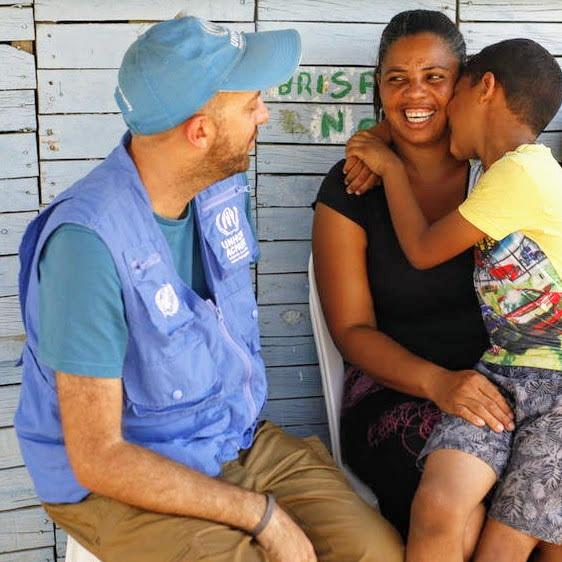Socioeconomic Impact of COVID-19, 2021
Costa Rica, 2021
Get MicrodataIdentification
UNHCR_CRI_2021_SEIC_v2.1
Socioeconomic Impact of COVID-19, 2021
| Name | Country code |
|---|---|
| Costa Rica | CRI |
Sample Frame, Households [sf/hh]
The COVID-19 pandemic is first and foremost a health shock, but the secondary economic shock is equally formidable. Access to timely, policy-relevant information on the awareness of, responses to and impacts of the health situation and related restrictions are critical to effectively design, target and evaluate programme and policy interventions. This research project investigates the main socioeconomic impacts of the pandemic on UNHCR people of concern (PoC) – and nationals where possible – in terms of access to information, services and livelihoods opportunities. Two regions were targeted: the Greater Metropolitan Area and the Northern region. Two rounds of data collection took place for this survey, with the purpose of following up with the respondents.
Sample survey data [ssd]
Household
Version
v2.1: Edited, cleaned and anonymised data.
Scope
The scope includes:
- household demographics
- employment and livelihood
- knowledge about covid
- health
- food security
| Topic |
|---|
| Health |
| Livelihood and Social cohesion |
| Health and Nutrition |
| Food security |
Producers and sponsors
| Name |
|---|
| UNHCR |
Sampling
UNHCR’s ProGres database in Costa Rica contains 47,491 registered individuals of which 30,494 are active. Of the 30,494 active individuals registered in the database, 22,487 have a known location as well as a listed primary phone number. Phone penetration rates are high among the PoC population in Costa Rica with 9 out of 10 families having a phone number registered in the ProGres database. This list constitutes just over 22% of the total estimated PoC population living in Costa Rica. As such, this final list serves as the first-choice sampling frame for the phone survey. In addition, two regions of Costa Rica were identified for targeted sampling of PoC following discussion with the UNHCR country team and regional bureau and based on information captured in the ProGres database. These include the Greater Metropolitan Area (GAM, for its acronym in Spanish) inclusive of the capital San Jose and the Northern region. Moreover, it was identified that understanding differences across sub-groups based on country of origin was essential for operational needs. In the GAM the biggest groups are Nicaraguans (67%), Venezuelans (13%) and Cubans (11%). Alternatively, in the North Nicaraguans represent 90% of the PoC population. Based on the above, a sampling strategy was proposed based on four separate strata in order to adequately represent the regions and sub-groups of interest: 1.)GAM – Nicaragua stratum: Nicaraguan PoC in GAM; 2.) GAM – Venezuela stratum: Venezuelan PoC in GAM; 3.) GAM – Cuba stratum: Cuban PoC in GAM; and 4.) North – Nicaragua stratum: Nicaraguan PoC in the North.
Post-hoc weights were generated for the PoC sample based on observable characteristics to ensure representativeness to the sample frame (i.e. ProGres), as were weights to account for attrition across survey rounds.
Survey instrument
Questionnaire contained the following sections: consent, knowledge, behaviour, access, employment, income, food security, concerns, resilience, networks, demographics
Data collection
| Start | End |
|---|---|
| 2021-03-03 | 2021-08-26 |
| Name |
|---|
| UNHCR |
| Innovations for Poverty Action (IPA) |
Data Access
UNHCR (2022). Costa Rica: Socioeconomic Impact of COVID-19, 2021. Accessed from: https://microdata.unhcr.org
Contacts
| Name | Affiliation | |
|---|---|---|
| Curation team | UNHCR | microdata@unhcr.org |
Metadata production
UNHCR_CRI_2021_SEIC_v2.1
| Name |
|---|
| UNHCR |
2022-03-21
